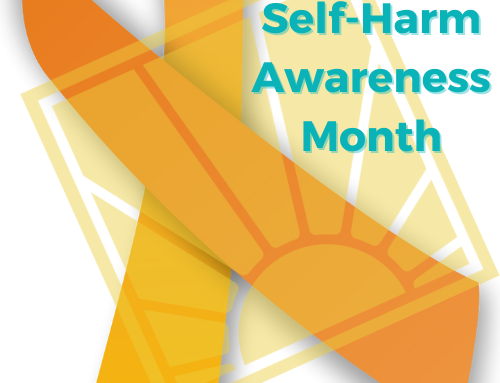Self-harm is a problem among many of the youth in this country. It can be incredibly difficult to know how to help someone who self-harms. There are many emotions tied up on both sides of the relationship and it can be an unbearably uncomfortable issue to confront. But when someone you love is self-harming there are many paths to help them heal. The most important thing that you can do is to talk and to listen. To make that talk as successful as it can be, here are some guidelines to as you try to help your daughter.
Be Clear and Direct
Talking with your daughter that you suspect may be participating in self-harm is the most helpful thing that you can do. It is vital, however, that you’re clear and upfront with them. This is a very uncomfortable topic, for both you and your daughter. It can be so much easier to just skirt around the issue. It would be easy to be vague and unclear about what you really want to talk about. But if you have decided to talk to your daughter about self-harm, it is so important to be clear. It can be so effective to just say something like “I’ve noticed scratches on your arms. I know that that can be a sign of self-harm. Are you self-harming?” Though it can be hard to be so upfront about such a serious issue, it let’s them know that they can talk about it. It’s helps them push past the shame and the guilt that’s attached to self-harm and allows them to open up. It also shows them that you do love them and that you love them enough not to tiptoe around the issue. So being upfront, clear, and direct about such a serious issue most importantly helps the person feel loved and supported. It lets them know that they have people who love them available to help. So be clear and be direct.
Don’t Push the Issue
Sometimes your daughter will simply not be ready to talk about this issue. It’s a very serious issue that brings with it a lot of pain, guilt, and shame. It can be too much for her to deal with emotionally right now and she simply could not be ready to talk about it. In this moment, it is important that you don’t push the issue. Be calm, understanding, and clear. Let them know that you’re there for her and you’re there to listen. That when they’re ready you’re there to help. Again this helps her feel loved and cared for and lets her know that she has someone she can trust and confide in.
Assess the Seriousness
If a loved one or your daughter comes and discloses to you about self-harm, it’s important that you assess the seriousness of it. How often does it occur? What moods or emotions lead to it? What time of the day are you most like to self-harm? What’s associated with it? How are you self-harming. This not only helps you realize the seriousness of the act, but it also helps the person realize the function that self-harm plays in their life. This gives them a plan to see what leads them to self-harm, which gives them a path to get away from such harmful behavior. This gives them the ability to move past this harmful behavior.
Help them Feel Loved
The most important thing that these strategies accomplish is helping the sufferer see just how much they are loved. Often times a person practicing self-harm falsely believes that that is how they are able to build relationships and that’s how they can get love from someone. In speaking with them is such ways as described above, it helps your daughter see that she is loved. There are people who care deeply about her, and that love and care doesn’t come from her self-harming. Many times when someone is self-harming with a need for love, care, and respect; helping someone feel that love and care outside of the self-harm is enough to motivate them to stop.
How to Help Someone Who Self-Harms
Self-harm is an incredibly intense ordeal that many families go through. In speaking with your daughter and helping her feel loved and cared for, you can help her find the strength she needs to move past the hurt and the pain associated with self-harm. At Sunrise Residential Treatment Center, we want to help your family heal and move past the pain that motivates someone to harm themselves. If you feel that you don’t know how to help someone who self-harms and your daughter needs more help than you can provide, please call us at 435-900-7753.
—
By Jake Sparks. A former therapist at Sunrise Residential Treatment Center, Jake is now the Clinical Director at Sunrise’s sister program, Chrysalis Therapeutic Boarding School in Montana.

